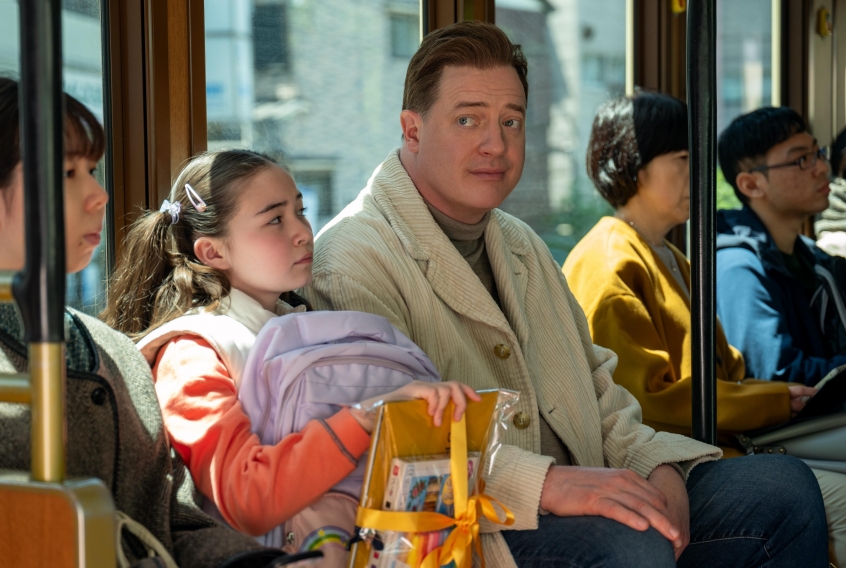Ticketworthy! - Rental Family [1]

Guest Review By: Emma Hilton
Rental Family – 2025 – 110 Minutes – Rated PG-13
4/5 ★
Rental Family is a playful yet deeply heartfelt slice-of-life film that uses its slow pace to settle viewers into the quiet, emotional rhythms of modern Japan. Though it takes a while for the plot to begin truly, the film’s tenderness, sincerity, and stunning sense of place ultimately make it a moving, empathetic experience. It isn’t just good; it feels necessary in our post-COVID, hyper-online world.
The film taps into the growing Japanese business of hiring actors to play family members, companions, or emotional support, an industry that is steadily growing worldwide. Philip (Brendan Fraser) lives in Japan as an actor feeling displaced and lonely, and is unexpectedly recruited into a rental-family agency. As he learns to portray everything from a father to a friend, he becomes entwined with several clients, including a young girl who befriends him, a grieving family, and individuals quietly struggling with loneliness.
The film is undeniably slow-paced, sometimes taking longer than expected for the main plot to activate. Long stretches of silence force viewers to sit with the characters’ emotions, an unusual approach but one that feels refreshing. While the movie asks audiences to suspend disbelief, especially regarding the young girl who quickly becomes attached to an unfamiliar adult, it grounds itself in emotional truth. Themes of grief, loss, and the difficulty of facing one’s own feelings create a narrative that proves joy can exist even in pain.
Fraser delivers a beautifully bumbling, overly emotional performance, “the token white guy,” as the movie itself jokes, towering physically over a world he doesn’t quite fit into. Yet his empathy makes him instantly relatable. Fraser reportedly learned Japanese for the role, and his hesitant delivery became part of Philip’s charm.
Every other central character is easy to connect with, thanks to understated performances that reflect the quiet, often stoic emotional habits of Japanese culture. The film never mocks this restraint; instead, it becomes a love letter to it. Fourth-wall breaks occasionally draw viewers closer, making the emotions feel shared rather than observed.
The visuals are breathtaking: lingering shots of Japan’s oceanside, forests, and city streets create a grounding sense of place. The story embraces cyclical imagery: starting in winter and ending in spring as cherry blossoms bloom, moving from artificial connections to authentic ones, and visually shifting from muted tones to brighter colors. The film quietly suggests that from the start of life to the end, all we truly want is someone to listen to us.
The score is barely noticeable in the best way: soft, subtle, and content to blend into the background. Silence becomes one of the film’s most potent tools, shaping the emotional beats. When music is used, it’s intentional. While a large portion of the movie is in English, subtitles may frustrate some viewers, but they were hardly noticeable at some points and enhance the immersion and authenticity, blending American and Japanese culture without judgement.
This is a film about ego, empathy, and the quiet human desperation to be seen. It explores how easy it is to lie rather than face emotional truth, yet argues that real connection, even painful connection, matters far more. Rental Family feels like the gentle reminder we need: sometimes it’s okay to pretend, but eventually we have to come back to real life.

